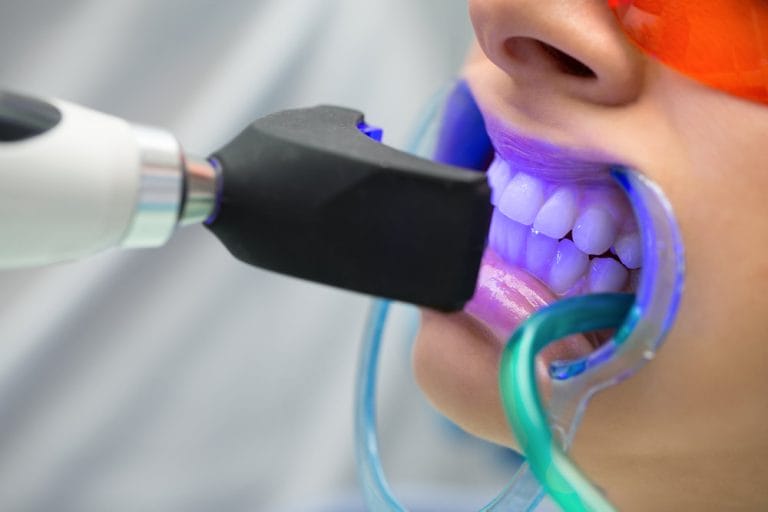Teeth whitening is a lot easier these days thanks to over-the-counter products like whitening strips and treatments. Your mouth is an important part of your body, so it is important that you only use safe treatments to brighten your smile. Some treatments can do more harm than good, while other teeth whitening methods are more tried and tested and provided better results while reducing harm to your teeth. You never want to erode your enamel, cause cavities or develop major issues because you sought out alternative whitening solutions. By knowing the following common mistakes, you can protect your teeth, mouth, and gums from harm.
Abuse of Whitening Strips
Whitening strips are an easy way to brighten your smile and can be a great addition to a robust oral hygiene routine. However, nothing will replace regular oral care. Do not try to use these strips daily. This will wear down your enamel and cause some serious irritation. It is important that you fully read the instructions and do not wear the strips for too long. Remember to space out use. If you try to use the strips more than recommended, you could experience increased sensitivity and pain.
One-Size-Fits-All Whitening Trays
Be careful of the whitening trays sold in local stores. Trays that are one-size-fits-all can irritate your gums and cause sensitivity and pain. Any whitening solutions put into these trays may leak out, which defeats the point of whitening. This is an easy way to lose money and cause problems. A dentist uses custom trays to whiten your teeth. Do not skimp on this investment.
Lemon Juice and Apple Cider Vinegar Treatments
Be careful of using alternative whitening treatments. You do not want to damage your teeth by using lemon juice, apple cider vinegar and similar solutions. The acid can actually put you at a bigger risk for developing cavities since the liquid erodes enamel. Steer clear of this whitening option.
Baking Soda Teeth Whitening Alternatives
Some people swear by using baking soda as a whitening option because it is inexpensive and accessible. Professionals do not recommend using this household product. It can be too rough on your teeth and actually weaken your enamel. It is actually safer to invest in a whitening toothpaste, regular brushing and flossing, and to talk to your dentist about whitening options.
Other Do-It-Yourself Teeth Whitening Alternatives
Never use items that are not designed for your teeth or oral health. For example, do not use bleach, hydrogen peroxide or other household chemicals for teeth whitening. These products could actually make you sick, damage your teeth and even stain them. Always look for whitening items that have been endorsed with the American Dental Association (ADA) seal.
The best way to maintain your oral health is to regularly brush, floss, and see your dentist. If you ever want to whiten your teeth, professionals will know the safest options. Steer clear from over-using strips and other methods so you can avoid pain and stress. When in doubt, consult dental professionals for advice on at-home treatments and oral care. They will help you find the right products that can brighten your smile without causing you major issues.




